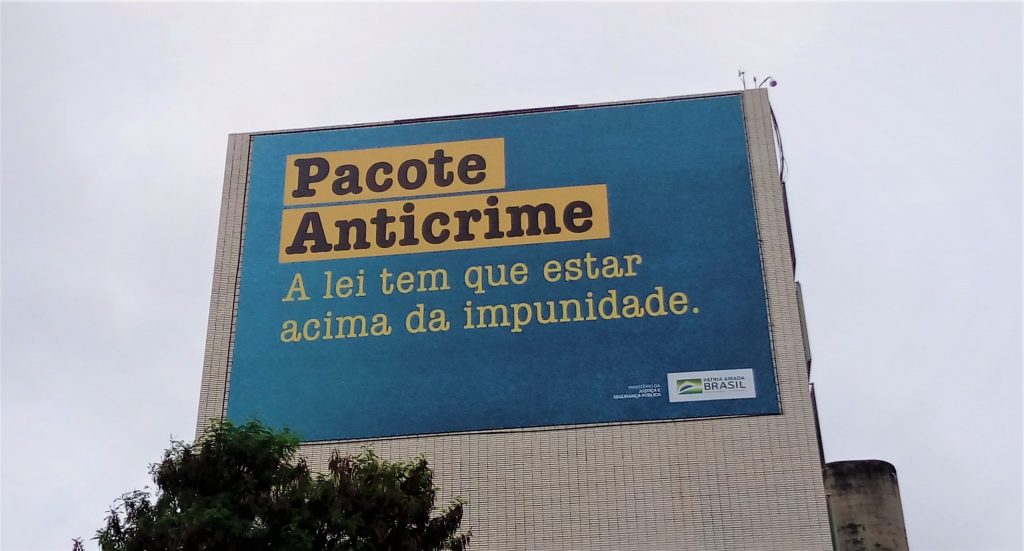RIO DE JANEIRO, BRAZIL – The full Chamber of Deputies approved, on Wednesday, December 4th, the anti-crime package bill (PL 10372/18).
The basic text was passed by 408 votes in favor, nine against, and two abstentions and, subsequently, deputies rejected an amendment proposed by the Novo (“New”) party, which called for the removal of the role of the guarantor judge, a judge in charge of monitoring the lawfulness of criminal investigations and who will not judge the substance of the allegations.
The bill is still pending examination by the Senate.

Earlier, deputies approved a request for the urgent processing of the bill, which was approved by 359 votes to nine.
The deputies approved the substitute text proposed by deputy Lafayette de Andrada, amending the text proposed by the rapporteur of the working group, deputy Capitão Augusto. The working group examined two texts on the subject sent to the legislature. One of the original proposals was prepared by the Supreme Court (STF) Justice Alexandre de Moraes, and the other by the Minister of Justice and Public Safety, Sérgio Moro.
To reach the final text, the working group removed controversial issues, such as the determination that there is no crime if injury or death is the result of intense fear (the so-called “illicit act exclusion cause”) and the provision for imprisonment after conviction is upheld by an appellate court.
Among the points included in the bill are the increase from 30 to 40 years for the maximum period of imprisonment in the country and the increase in the penalty for second degree murder, involving restricted or prohibited firearms (such as rifles), which will increase from six to 20 years to 12 to 30 years of imprisonment, among other cases in which there is an increase in penalties.
Another change is that the granting of parole will also be contingent upon the offender not having committed serious offenses in prison during the last 12 months of this period and the behavior should be deemed good rather than satisfactory.
The project also increases the number of cases classified as heinous crimes, in which the convict cannot expect amnesty, grace or pardon and must start serving the sentence in a fully incarcerated regime.
These include, among others, homicide and theft with a restricted or prohibited firearm; theft with the use of explosives; international trade or trafficking in firearms; and criminal organization for the perpetration of a heinous crime. However, the possession or carrying of a restricted weapon by anyone not allowed to do so is no longer classified as heinous.
The right to progression from a prison sentence to a less severe one (work release days, sleep only in prison) will depend on the type of crime.
With the new rules, the time required varies from 16 percent for first-time offenders whose crimes were not violent to the victim to 70 percent if the offender of a heinous crime in which the victim died is a repeat offender in this type of crime.

